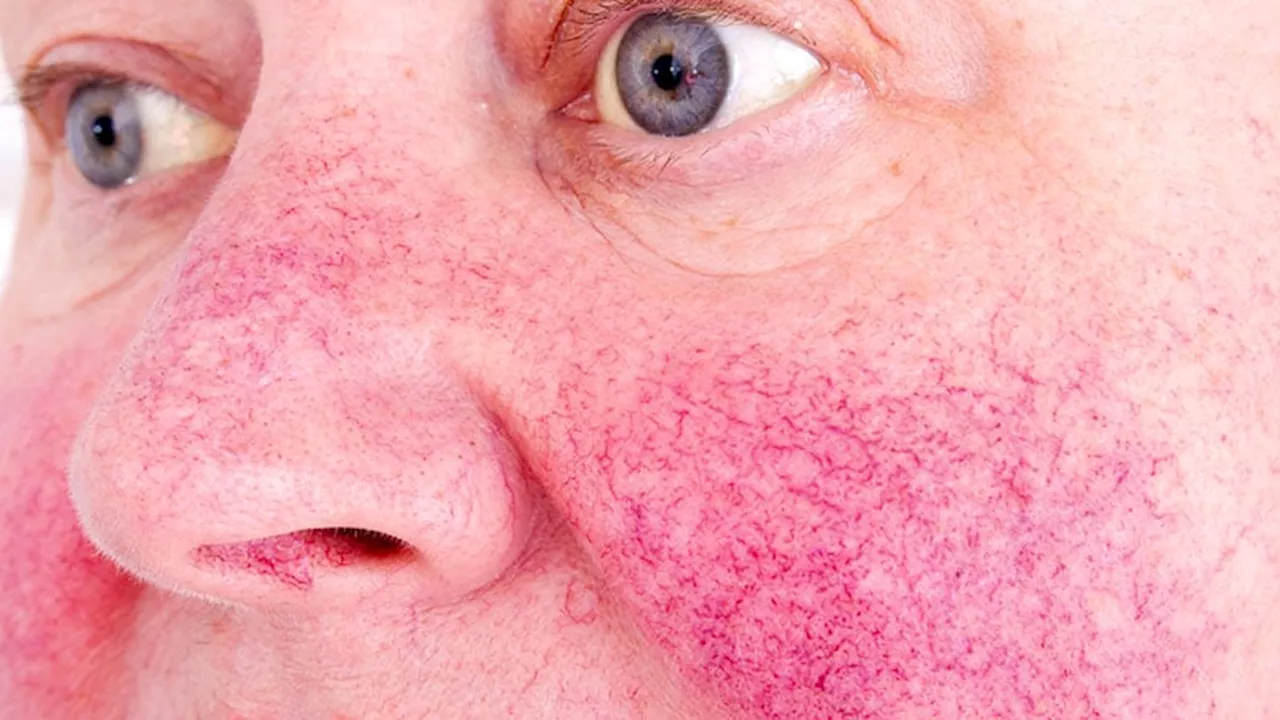Recent studies support associations between rosacea and dyslipidemia, gastrointestinal issues, and depression, which “seem to come up most frequently,” said Gallo.
As a steady stream of studies suggests associations between rosacea and comorbidities, ranging from cardiovascular disease to depression and gastrointestinal issues, patients may look to their dermatologists for guidance on how to interpret these findings.
For example, he and colleagues have demonstrated that the facial skin of patients with rosacea has an abundance of a peptide known as LL-37, which has antimicrobial and proinflammatory properties. “LL-37 is also abundant in psoriasis,” Gallo noted. “We’venewsletter, said that every patient with rosacea that she sees completes a review of systems, which “should flag any comorbidities that are already present.
For now, she continued, the best course of action is to identify and manage the clinical findings well. “We do this by matching our treatments mechanistically to the clinical features that we see. This will almost always include anti-inflammatory medications.”
Acne Rosacea Board Certification Boards Board Recertification Dyslipidemia Dyslipidaemia Facial Primary Care Referral Cardiovascular Disease Cardiovascular Disease (CVD) Bloating Abdominal Bloating Abdominal Pain Small Intestinal Bacterial Overgrowth Small Bowel Bacterial Overgrowth Syndrome Depression Abdominal Alabama Anxiety Bacterial Overgrowth Syndrome Bacterial Overgrowth
United States Latest News, United States Headlines
Similar News:You can also read news stories similar to this one that we have collected from other news sources.
 ADHD Comorbidities Split Along Gender Lines: New StudyLearning disabilities and conduct disorders are more common among men with ADHD, while women with ADHD are more likely to experience emotional and sleep disorders, according to a new study that notably did not consider eating disorders or migraines.
ADHD Comorbidities Split Along Gender Lines: New StudyLearning disabilities and conduct disorders are more common among men with ADHD, while women with ADHD are more likely to experience emotional and sleep disorders, according to a new study that notably did not consider eating disorders or migraines.
Read more »
 Sulfuric Acid Found in Texas Locker Linked to US Veteran in New Orleans BombingThe FBI discovered bottles of sulfuric acid, a common explosive ingredient, in a storage locker linked to a US Army veteran who authorities believe carried out the New Orleans bombing. The suspect, identified as Jabbar, reportedly drove to New Orleans from Houston and placed explosive devices along Bourbon Street. He also allegedly set fire to his rental home in an attempt to destroy evidence.
Sulfuric Acid Found in Texas Locker Linked to US Veteran in New Orleans BombingThe FBI discovered bottles of sulfuric acid, a common explosive ingredient, in a storage locker linked to a US Army veteran who authorities believe carried out the New Orleans bombing. The suspect, identified as Jabbar, reportedly drove to New Orleans from Houston and placed explosive devices along Bourbon Street. He also allegedly set fire to his rental home in an attempt to destroy evidence.
Read more »
 Sulfuric Acid Found in Texas Locker Linked to BombingsThe FBI and Harris County Sheriff's Office discovered bottles of sulfuric acid in a storage unit linked to a U.S. Army veteran who is suspected of carrying out a bombing attack in New Orleans. The acid, a common ingredient in explosives, was found in a cooler during a search, raising concerns about potential further threats.
Sulfuric Acid Found in Texas Locker Linked to BombingsThe FBI and Harris County Sheriff's Office discovered bottles of sulfuric acid in a storage unit linked to a U.S. Army veteran who is suspected of carrying out a bombing attack in New Orleans. The acid, a common ingredient in explosives, was found in a cooler during a search, raising concerns about potential further threats.
Read more »
 Loneliness Linked to Specific Proteins, Raising Health ConcernsScientists have found a connection between loneliness and specific proteins in the blood, suggesting a biological basis for the increased health risks associated with social isolation.
Loneliness Linked to Specific Proteins, Raising Health ConcernsScientists have found a connection between loneliness and specific proteins in the blood, suggesting a biological basis for the increased health risks associated with social isolation.
Read more »
 Sleep Duration Linked to Cardiovascular HealthA new study from Columbia University reveals that sleep duration plays a crucial role in cardiovascular health. Individuals who sleep less than seven hours per night are at an increased risk of developing cardiovascular disease.
Sleep Duration Linked to Cardiovascular HealthA new study from Columbia University reveals that sleep duration plays a crucial role in cardiovascular health. Individuals who sleep less than seven hours per night are at an increased risk of developing cardiovascular disease.
Read more »
 Antidepressants Linked to Reduced Emotional Reward, Study FindsA new study from the University of Cambridge suggests that antidepressants, specifically SSRIs, may negatively impact emotional reward by altering reinforcement learning. Researchers found that individuals taking SSRIs experienced a decrease in reinforcement learning, which is the process of learning based on rewards. This may explain the common side effect of 'emotional blunting' reported by some antidepressant users.
Antidepressants Linked to Reduced Emotional Reward, Study FindsA new study from the University of Cambridge suggests that antidepressants, specifically SSRIs, may negatively impact emotional reward by altering reinforcement learning. Researchers found that individuals taking SSRIs experienced a decrease in reinforcement learning, which is the process of learning based on rewards. This may explain the common side effect of 'emotional blunting' reported by some antidepressant users.
Read more »
